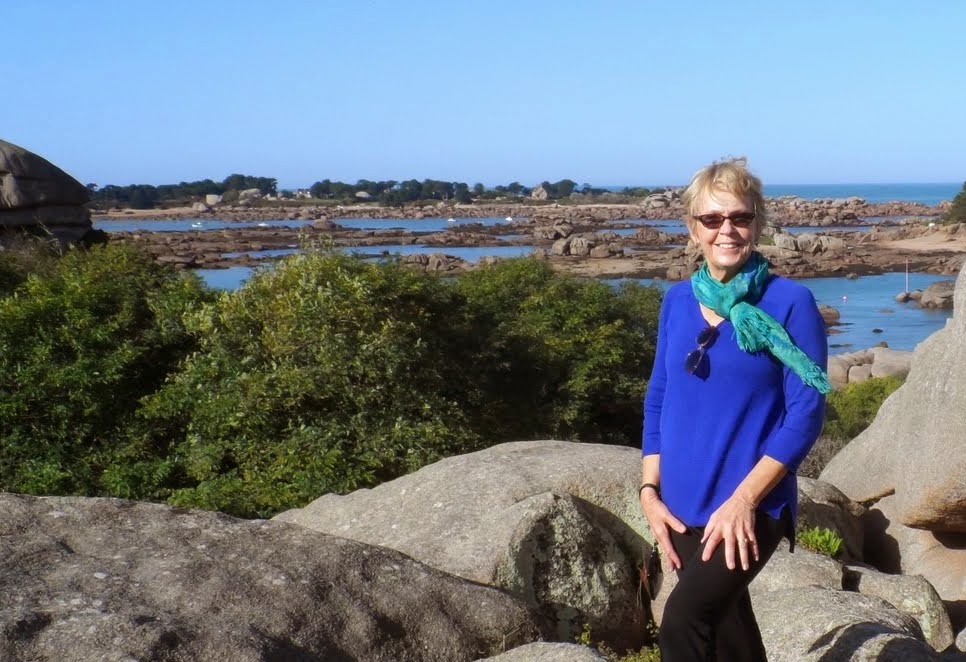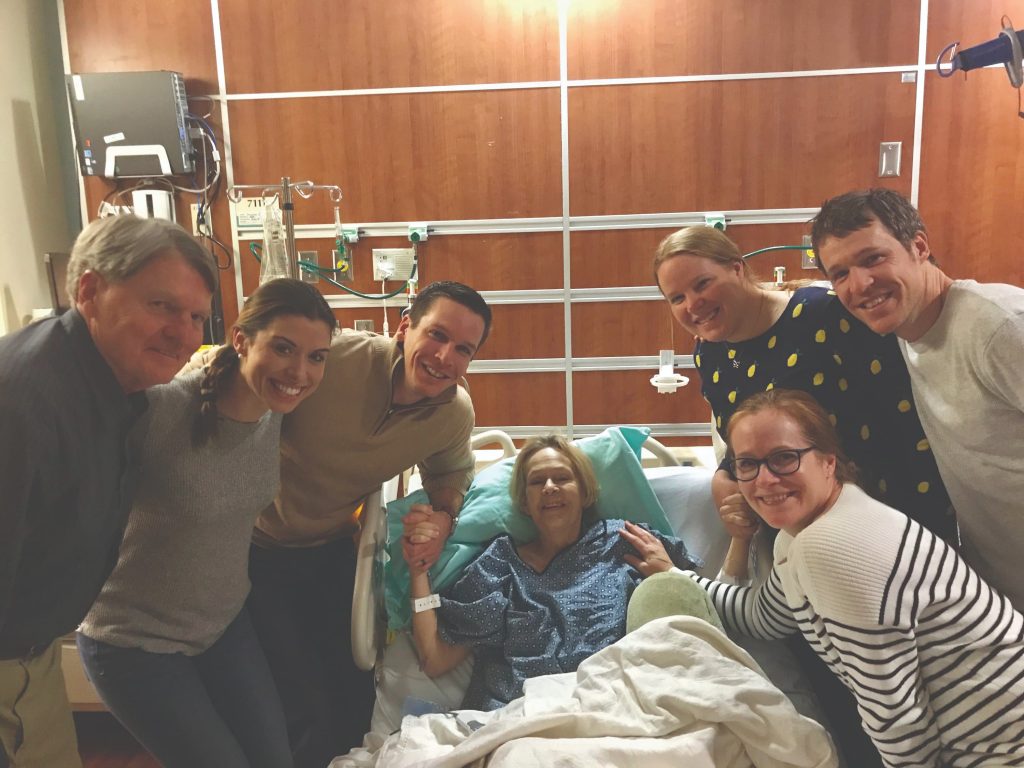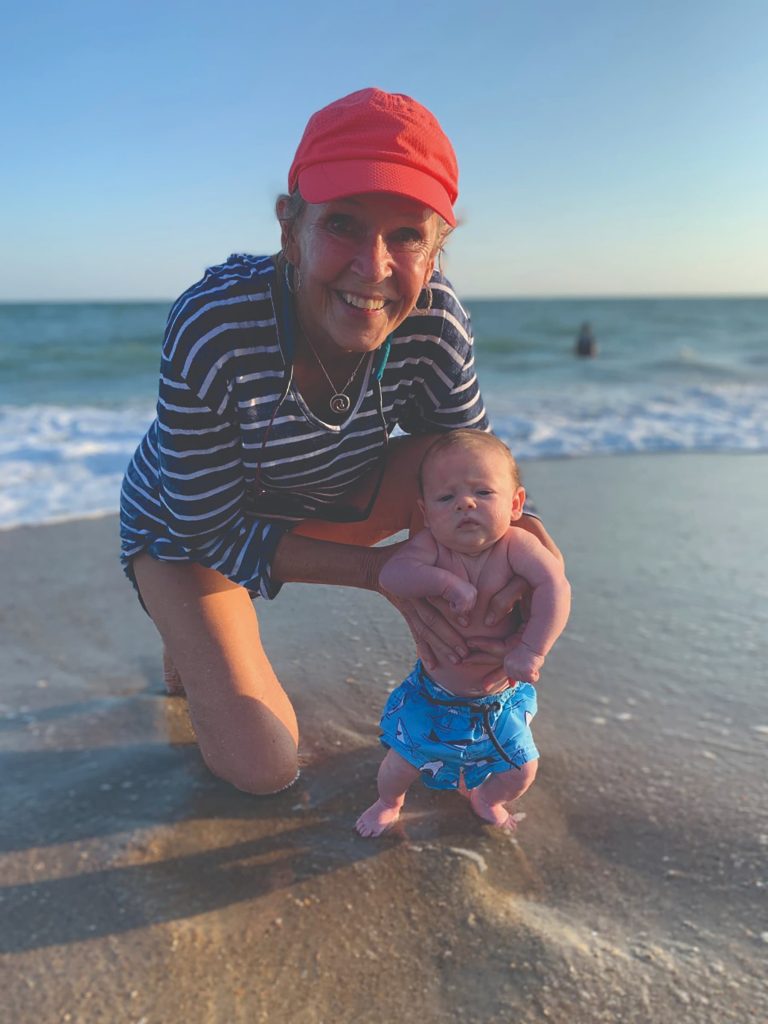When Janet Geisler feels herself beginning to go to a dark place in her mind, she knows how to leave those thoughts behind and bring herself to a place of light and peace. That’s something the 71-year old, who splits her time between Emerald Isle, North Carolina, and Richmond, Virginia, has not always been able to do. It took an arduous journey with a second cancer diagnosis to achieve it.

In 2011, the mother of five was diagnosed with breast cancer. Her gynecologist in Greenville, North Carolina, found a lump in her breast and she had a lumpectomy, followed by radiation and aftercare appointments.
“At every visit my only complaint was a feeling of fullness and achy discomfort in the left side and flank area,” she said. “I always reported it, but never said it was a big deal, and my lab results showed no sign of recurrent breast cancer. I’m a pretty tough cookie and don’t like to complain. At day’s end, I’d have a glass of wine, a couple ibuprofen and put a pillow under my arm, which eased the discomfort.”
Although the symptoms lessened at times, they never went away. She became more and more uncomfortable during an extended visit to see her daughters in Massachusetts, especially on family hikes. “We knew something wasn’t right,” she said.
On her return to North Carolina, fever, loss of appetite and nausea brought her to her general practitioner. The doctor saw the pillow under Geisler’s arm and ordered a scan. “That’s how my cancer was found.”
Determined to stay strong
Geisler saw a recommended surgeon in Morehead City, North Carolina, but the tumor was large and involved, and she was sent to the North Carolina Cancer Hospital, the clinical home of UNC Lineberger. She saw UNC Lineberger’s Lawrence Kim, MD, specialist in endocrine cancers, but a biopsy determined she had liposarcoma, not adrenal cancer. Kim offered to do the surgery, but told her UNC Lineberger had a sarcoma specialist on staff, HJ Kim, MD, and Geisler went to him for her surgery.

Before her surgery, Geisler developed pneumonia and was hospitalized for a week.
“They thought the cancer had spread to my lungs, and there was talk of just using comfort measures. That was a very low point for me,” Geisler said.
Fortunately, tests revealed the cancer had not spread to her lungs. Geisler underwent a six-week course of radiation to help shrink the margins of the tumor before surgery. The treatment caused extreme nausea and weight loss, and the severity of the weight loss put her surgery in jeopardy.
Geisler became determined to build up her strength and improve her nutrition, which was difficult because food repulsed her, and she couldn’t bite or chew.
“I climbed my stairs over and over, got stronger, and finally Dr. Kim said ‘I think this is doable.’ I realize he not only had faith in his skills but in my determination and strength,” she said.
Her surgery was scheduled to last five hours, but it only took two hours, despite removing the tumor and her spleen, left kidney, adrenal gland, gall bladder and part of her pancreas. Geisler said her recovery was easier than expected.
Just making it through surgery was a testament to her strength and HJ Kim’s expertise, but Geisler knew her cancer had a high rate of recurrence and during recovery at home, she found herself in a period of deep depression. “I’ve gone through all this,” she said. “Living for years with the tumor, coming out of extensive surgery, and now thinking it’s going to recur. I began to think, ‘what’s the point?’” She finally came to a startling realization.
“I can’t do this by myself; I need help.”
Finding support and peace
With the guidance of a New Bern, North Carolina, oncology psychologist, and the support of friends and family, Geisler got the help she needed. She started small, and joined a support and meditation group, restarted yoga classes — unable to do most poses, but trying. That led to Pilates, and walks with friends.
Geisler found herself dwelling on past regrets, like caring for her mother and other terminally ill family members and feeling she hadn’t done enough for them. And she held on to anger at the oncologist who never ordered a scan.

“Through meditation, I was able to understand that, yeah, those things happened, but I did the best I could. Don’t put blinders on those feelings, but let them go, acknowledge them, and let them roll by,” she said. “I’m better able to do that now, and I’ve realized that the stress, guilt and anger helped nothing, no one, and was only very detrimental to my health.”
Geisler knows there are other patients who may be experiencing the same darkness, and she has some encouraging words for those who are not in a good place.
“It’s so normal. It’s so imperative that you do feel this way, that you do feel scared, helpless, alone, feel life’s not fair. You have to feel that. I did. I had to come to where I felt ‘what’s the point?’ ” she said. “Even now, when I find those old demons taking over, I take a deep breath, go outside or speak to a friend and bring myself back to a place of peace and gratitude. I do owe that to myself and to all who helped me.”
Rebuilding her health, both mental and physical, is a priority for Geisler, and she is focused on introspection and doing things differently. She has come to like herself a lot more and is more thankful for her sense of humor and her strength.
“I’m quicker to say ‘yes’ to life, to possibilities, to adventures, and much quicker to say ‘no’ if asked to do something I don’t wish to or can’t do. I no longer feel guilty about saying no,” she said.
Geisler said she is always aware that her life is finite; she doesn’t know what will happen in the future, and she’s OK with that. “I have right now; I have this day. Be grateful and grab it for all it’s worth.
“Cancer gave me motivation and freedom in many ways. I hope people can look forward to that. I want to somehow help them understand that this can be an empowering experience. It absolutely was for me,” she said. “I have faced death, and I’m on the other side.”
